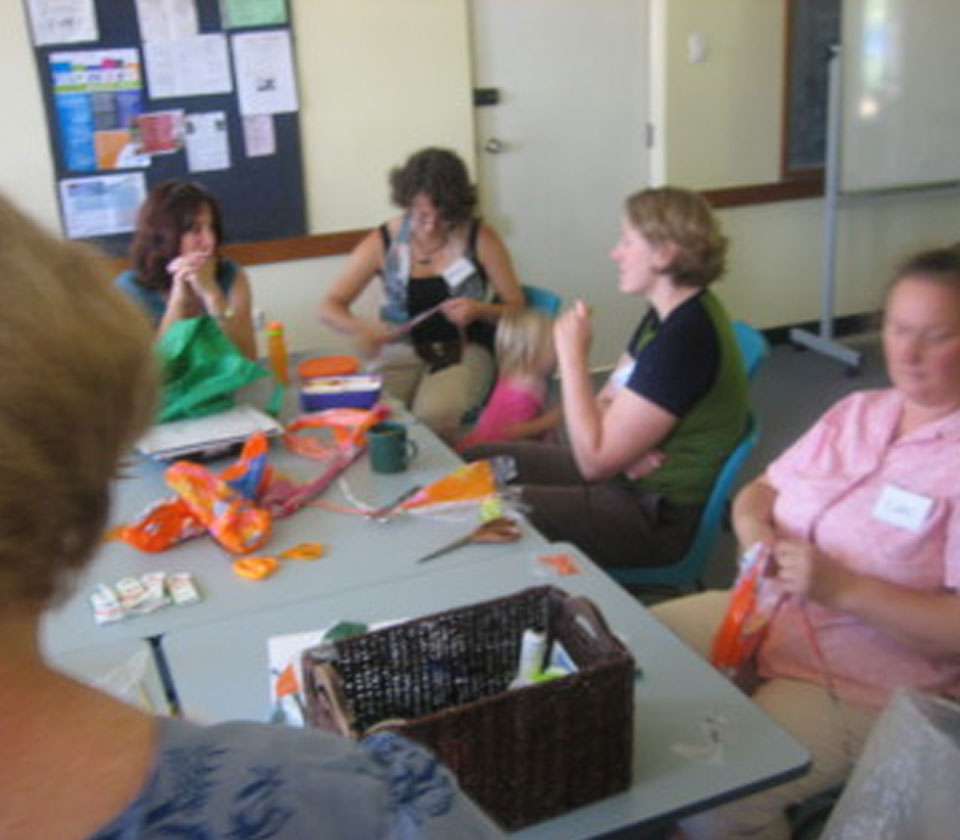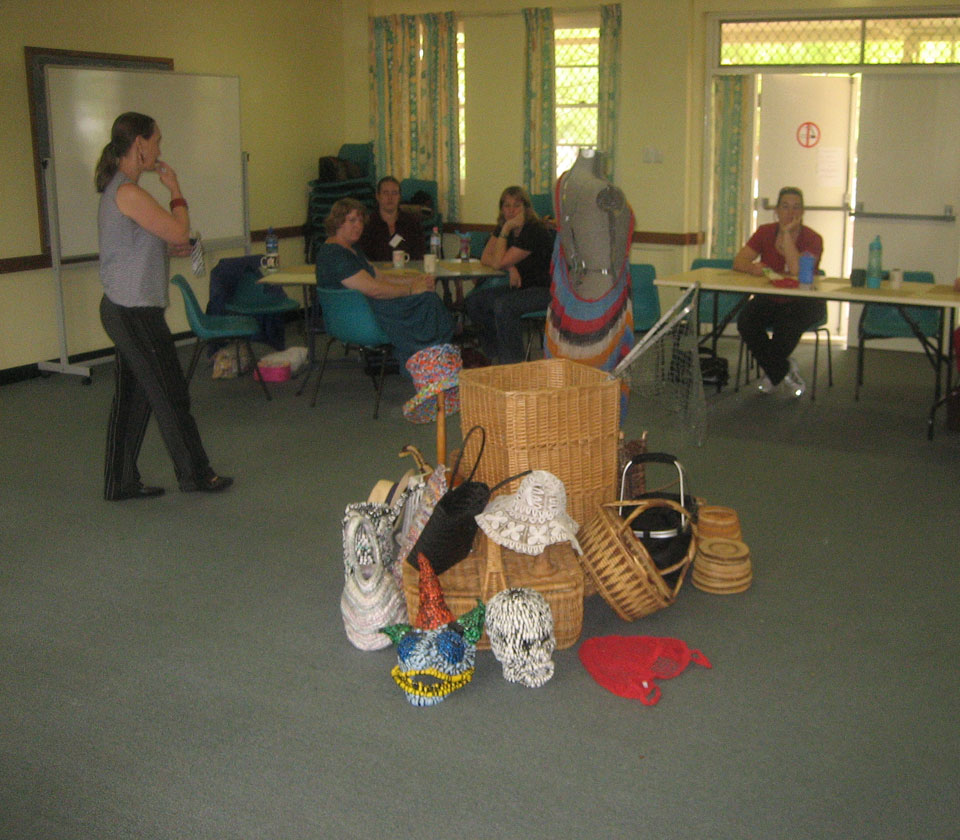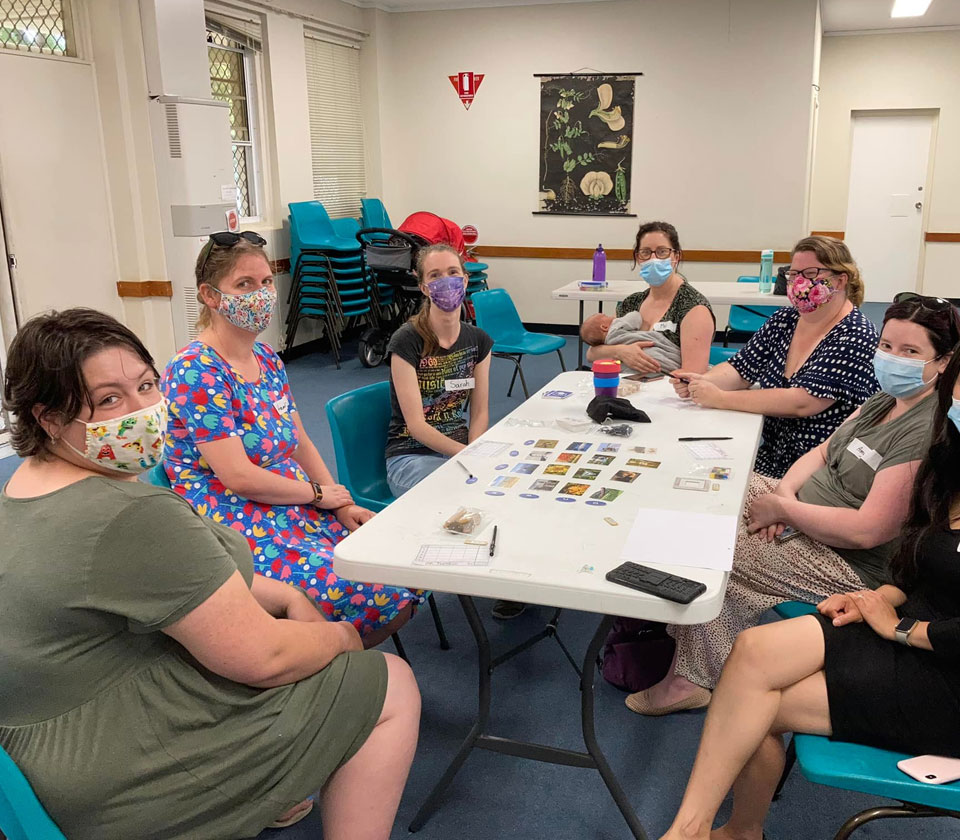Our Beginnings







The Majura Women’s Group was an attempt to pool the resources of the women around the neighbourhood, to help strangers become workmates and alleviate the difficulties of raising children. We wanted more than a playgroup; we wanted a group that catered to our adult interests whilst continuing to oversee the care of our children. Women in Canberra frequently lacked any of the traditional support to women at home; they often lacked family and old friends. They had a strong need to create a new community to build up supportive networks. For the first five years, women at home with small children met in their homes, mainly in Downer. We needed an easy solution as we were overstretched, overtired and limited in our experience in organising community groups. So we decided, we would visit each other’s home, and the hostess would provide a simple morning tea, and if we were lucky they would get to arrange a speaker of their choice. Rotating homes and responsibilities for organising speakers meant that each woman could further their own interests and it did not matter how organised or disorganised she was. It became increasingly difficult to watch the children whilst meeting to have stimulating discussion with outside speakers. The catalyst for change came when one participant had her chicken coop demolished by bored three year olds. It was time to move into bigger premises and with people paid to supervise the children.
In 1986, the group changed its name to Majura Women’s Group. From the 1990s, the group evolved from one that provided occasional courses and morning teas to its current model of meeting weekly at the Downer Community Centre together with adjunct childcare for those members who wish to access it. During school holidays, the group normally arranges informal play dates at a park or cafe where the mums and their children can continue to forge friendships and bond. As any mother can attest to, life with young children sometimes feels anything but under control. Yet the predictability that accompanies these Wednesday morning meetings gives many mothers a sense of routine and a feeling of reassurance– an anchor for their week.
“Adjunct childcare was available next door and it was the first time I ever successfully left my three year old in any structured care. The group has always encouraged mothers to keep their babies with them if they wish and I remember valiantly struggling to draw while breastfeeding the baby. Even under these circumstances I was extremely grateful that there was a place to come where I could do something for myself at this time in my life”
- Margaret Simpson, former president of Majura Women’s Group 1990-1992
Central to its modus operandi is the principle of being self-run. Members run the group and undertake all administrative and organisational work voluntarily. While making for a substantial workload for the group’s committee, the group’s autonomy ensures the relevance of the group’s program of activities, empowers its members and kindles their passionate involvement.
The Majura Women’s Group has held a wide variety of creative and physical activity sessions over the years. These sessions stimulate and nurture us mentally, physically and emotionally. Discussion sessions cover a wide range of topics and reflect the interests of group members at the time. Some are led by guest speakers and others are self-run. We talk about ourselves, our families, our homes and our community. Topics have included health issues, relationships, our children, environmental and legal matters and current affairs. Physical activity sessions have included belly dancing, tai chi, African drumming, Zumba, pilates and massage.
Many sessions are dedicated to learning creative skills such as crocheting, screen printing, card making, nature art journaling, and even ancient art forms such as Indigenous basket weaving and Japanese Sashiko Boro clothes mending techniques! The group has also produced many beautiful public artworks over the years, which can be seen in many locations around Canberra.
These opportunities for women to engage in creative activities are an important aspect of the Majura Women’s Group. When at home with young children it is difficult to move away from the necessary but often mundane tasks of caring for a house and family. Creative sessions provide an opportunity for women to have some time for themselves, to express thoughts and feelings in a safe environment and explore different ideas and artistic media. Creative sessions also provide a real sense of achievement for women who rarely have a chance to finish any task. The completion of a card, drawing or lino print is a tangible product of the period of their lives dedicated to raising young children. Another important, but not so obvious benefit is the way in which friendships develop as women sit side by side painting pictures or placing mosaic tiles. It is at these times, when relaxed and with a busy hand, that conversations about the real issues of mothering and life generally often evolve – where advice, support and friendship can be safely offered and accepted.
In 2021, Majura Women’s Group turned forty years old. Due to COVID-19 lockdowns being in place, no physical celebrations could be held yet the group persevered with virtual meetings every Wednesday night on Zoom. The women helped lift each other’s spirits during challenging times, crafting and chatting over many cups of tea. When the lockdowns eased, the women were finally able to commence work on a beautiful mosaic befitting the occasion, in collaboration with local artist Tina van Raay.
Majura Women’s Group continues to flourish and maintain its focus on supporting women with young children, providing friendship, sanity and new skills for a new generation of Canberra mothers. Its purpose remains as relevant as ever more than forty years on–reminding us that even though bringing up children is a full-time job, with the right support, there is space for personal growth and self-expression.
Our Hidden Lives
A poem by Elizabeth Winters, former Majura Women’s Group member
Our hidden lives
The way we feel
These are the things
We would like to express
Our hopes
Our fears
For the children we bear
That we’ll always love
And hope to protect
The work we do
Let it be acknowledged
Not denigrated and thrust aside
But justly praised and stated aloud
For through our joy
And our satisfaction
Motherhood, Womanhood
Will continue with pride…
